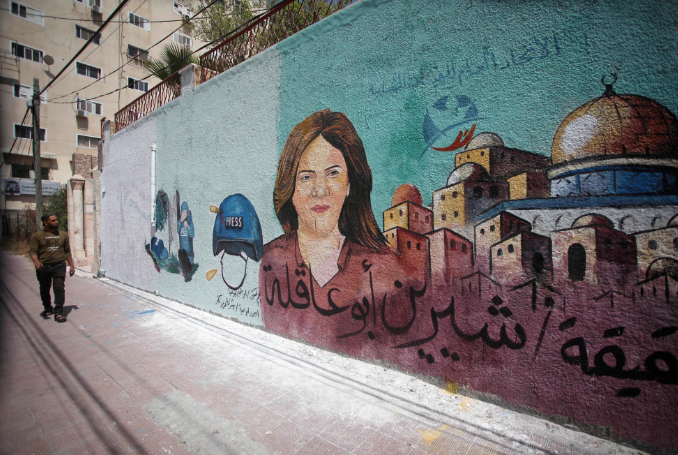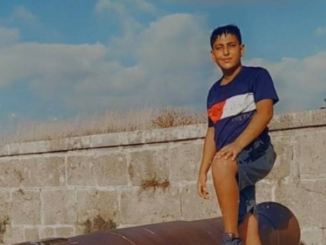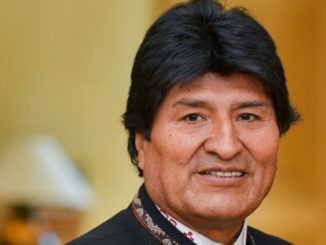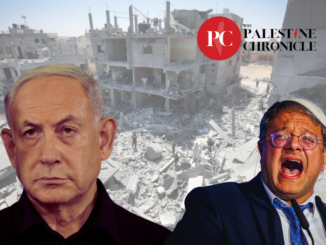
By Jamal Kanj
The killing of Al Jazeera journalist, Shireen Abu Akleh on May 11, is one more chapter of the 74-year-old Palestinian Nakba (catastrophe).
Much had been argued about the creation of Israel and the ensuing ethnic cleansing of historical Palestine. Sadly, most had become a desensitized academic debate, lifeless abstract portrayal failing to depict what it really meant to be a refugee without a country.
On May 15, 1948, Zionists danced and firecrackers burst over New York neighborhoods celebrating the founding of Israel. At the same time, and on the other side of the world, Zionist terrorist military organizations waged a war to depopulate Palestine from its native population. The end result, in access of 780,000 Palestinians were ethnically cleansed from more than 500 destroyed towns and villages.
For the new state, Palestinian refugees, like my own parents, were dispensable nuisances. In a 1948 foreign ministry study, Israel predicted the refugees “… will waste away. Some will die but most will turn into human debris and social outcasts ..” in other countries.
To Israel’s chagrin, refugees rose from the ashes of burned villages refusing to be cast into the oblivion of injustice. Shireen Abu Akleh grew up under occupation, armed herself with a microphone and a camera making sure her parents’ story is remembered and Palestinians do not become “human debris.”
The murder of Abu Akleh is inseparable from Israel’s continuum of crimes against Palestinian intellectuals. To name but few, the assassinations in Beirut of magazine editor Ghassan Kanafani in 1972, and Poet Kamal Nasser in 1973. The murders, like the razed villages in 1948, were part of determined Israeli efforts to thwart the Palestinian narratives and hide crimes against humanity.
Unlike Abu Akleh, when journalists were killed in Ukraine, the West rejected Russian inculpability, did not demand a joint investigation, and requested the International Court to investigate Russia’s war crimes.
In this case, Israel (like Russia) denied responsibility and charged its Hasbara PR machine with a deflection strategy to cast doubt on the murder and escape liability. Unlike Russia, however, Western media became a welling extension of the Israeli PR machine.
American media outlets ascribed nuanced terminology to explain Abu Akleh’s death, or promoted, unquestionably, the false Israeli PR narratives. For example, the initial New York Times headline said, “Shireen Abu Akleh, Trailblazing Palestinian Journalist, Dies at 51.”
In their initial coverage, Western media outlets ignored testimonies of firsthand eyewitnesses and those of journalist’s colleagues.. One who was injured, and a second hid behind a tree two feet away from the journalist’s body unable to help her friend. She watched tortuously as an Israeli soldier continued to shoot in their direction despite their blue media vests. Instead, Western media sought corroborations from Israeli PR professionals who were tens of miles from the crime site.
CNN waited almost two weeks before airing eyewitness accounts, and the Associated Press (AP) 12 days to eventually, in an overly cautious report, challenge the Israeli PR machine.
On the official level, the Biden Administration called for a joined Israeli and Palestinian investigation into the “death” of the journalist. Palestinians rejected the call for a joint investigation asserting that murderers can’t be trusted in investigating their murder.
Israel’s previous sham investigations have almost always absolved its army’s crimes, or issued a slap on the hand, if any. In addition, Israel has in the past protracted its investigations as part of a dual strategy: squish calls for an independent inquiry on the short term, and to deflate international outcries with the passing of time, on the long term.
To reference some examples, the 2003 murder of American activist Rachel Corrie, who was run over by an Israeli military bulldozer, and the murder in the same year of British cameraman James Miller. Or the 2000 murder of the 12-year-old Muhammad al-Durrah on live TV.
The army probes following up on these well-publicized crimes, like all lesser-known murders, exonerated Israeli soldiers and blamed the victims for their own death.
Alas, When compared to life lost in Ukraine, American life, and all lives for that matter, seem to have less value when the alleged murderer is an Israeli soldier, who most likely used an American weapon.
As in the case of previously murdered journalists, activists, children, and the razing of the media tower in Gaza, Israel executed Shireen Abu Akleh to silence the Palestinian story. For the microphone in Abu Akleh’s hand had become more perilous than a gun, and the camera more powerful than a bullet.
– Jamal Kanj (www.jamalkanj.com) is the author of “Children of Catastrophe,” Journey from a Palestinian Refugee Camp to America, and other books. He writes for various national and international commentaries. He contributed this article to The Palestine Chronicle

– Jamal Kanj is the author of “Children of Catastrophe,” Journey from a Palestinian Refugee Camp to America, and other books. He writes frequently on Arab world issues for various national and international commentaries. He contributed this article to The Palestine Chronicle







